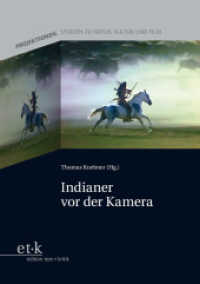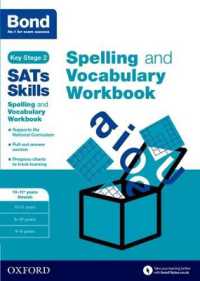- ホーム
- > 洋書
- > 英文書
- > History / World
Full Description
Between 1450 and 1550, a remarkable century of intellectual exchange developed across the Eastern Mediterranean. As Renaissance Europe depended on knowledge from the Ottoman Empire, and the courts of Mehmed the Conqueror and Bayezid II greatly benefitted from knowledge coming out of Europe, merchants of knowledge—multilingual and transregional Jewish scholars—became an important bridge among the powers.
With this book, Robert Morrison is the first to track the network of scholars who mediated exchanges in astronomy, astrology, Qabbalah, and philosophy. Their books, manuscripts, and acts of translation all held economic value, thus commercial and intellectual exchange commingled—knowledge became transactional as these merchants exchanged texts for more intellectual material and social capital. While parallels between medieval Islamic astronomy and the famous heliocentric arrangement posited by Copernicus are already known, Morrison reveals far deeper networks of intellectual exchange that extended well beyond theoretical astronomy and shows how religion, science, and philosophy, areas that will eventually develop into separate fields, were once interwoven. The Renaissance portrayed in Merchants of Knowledge is not, from the perspective of the Ottoman Muslim contacts of the Jewish merchants of knowledge, hegemonic. It's a Renaissance permeated by diversity, the cultural and political implications of which the West is only now waking up to.
Contents
Note on Translation and Transliteration
Preface
Map of the Eastern Mediterranean ca. 1500 CE
Introduction
1. The Network of Merchant-Scholar Families of Candia
2. Astrology, a Shared Hermeneutic
3. Transactions of Astronomical Tables and Instruments
4. Aristotelianism across Borders
5. Aristotelianism and Qabbalah
6. Theoretical Astronomy between Renaissance Italy and the Ottoman Empire
7. Tricks of the Trade in Mechanics and Medicine
Conclusion
Acknowledgments
Notes
Bibliography
Index








